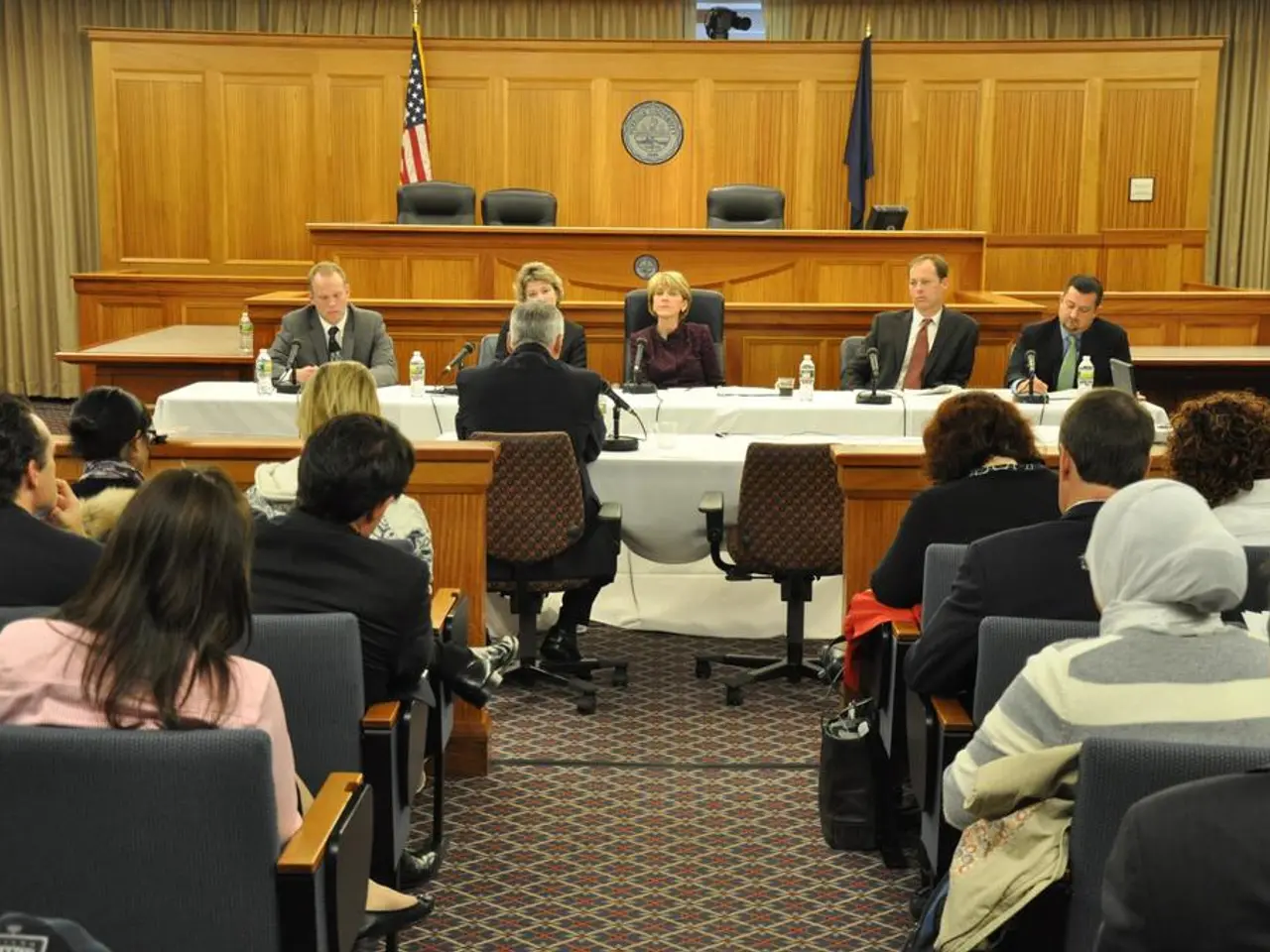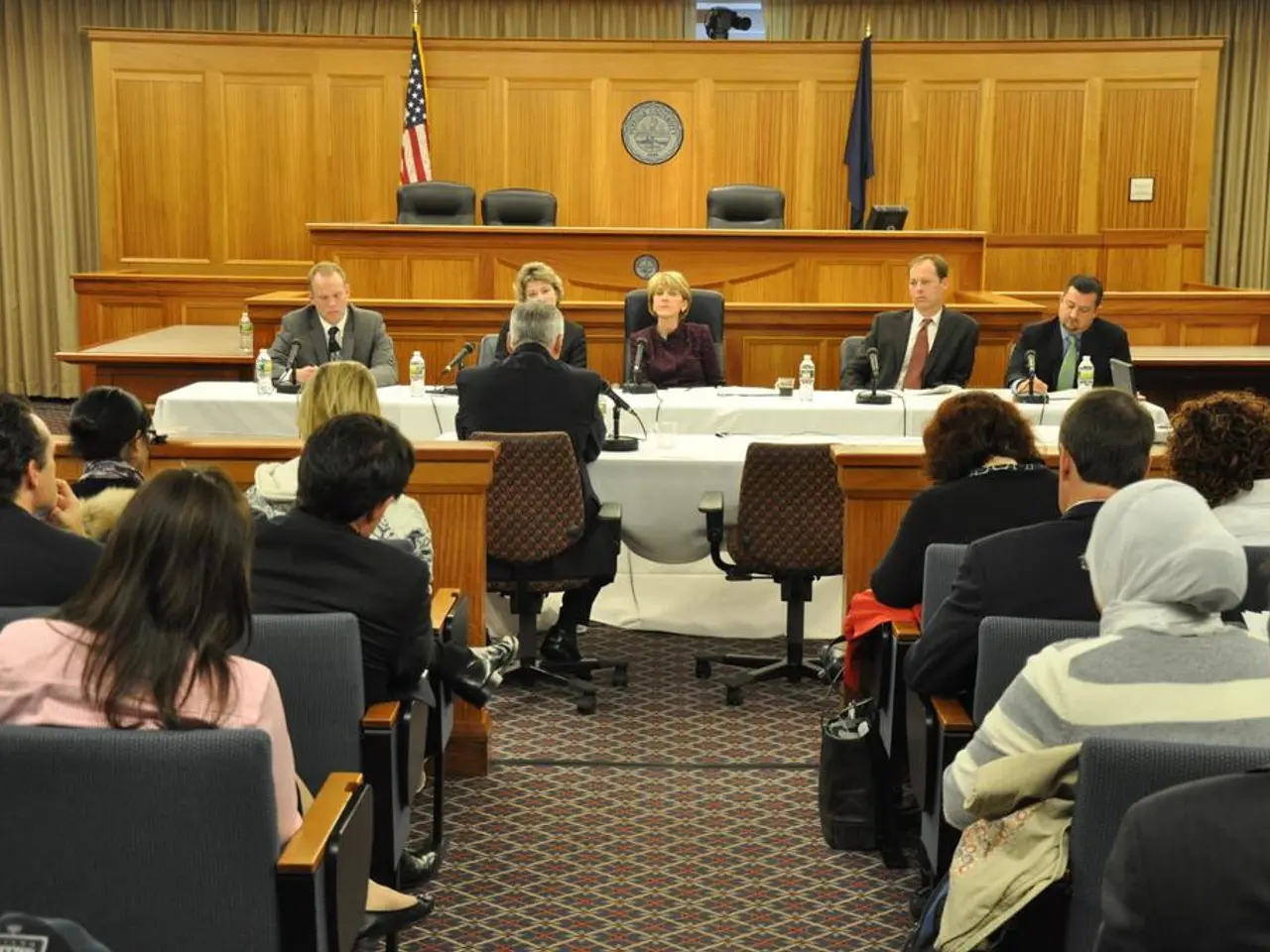Predicted Calamities: A Succession of Droughts, Storms, Floods, Wildfires, and Aircraft Mishaps as Recounted by Alfred N.Muggins
In the political landscape of the late 2010s, the economic policies of the Trump administration, particularly the imposition of high tariffs on China and other countries, have caused significant ripples across the global economy.
The tariffs, designed to protect American industries, have led to an increase in consumer prices and a crash in the American auto industry. This, in turn, has caused a decrease in demand for American goods, resulting in economic hardship for many. The American economy is now facing choppy waters due to this lack of demand.
The Trump administration's aggressive tariff approach has disrupted global trade flows, increased costs for producers and consumers, and depressed economic activity both in the U.S. and globally. According to J.P. Morgan Global Research, a 10% universal tariff combined with a 110% tariff on China is estimated to directly reduce global GDP by approximately 1%. Even a less severe scenario with a 10% tariff on most goods and a 60% tariff on China still results in a 0.7% reduction in global GDP.
These tariffs have also created reciprocal retaliation, further dampening China’s growth forecast to 4.4% for 2025. The uncertainty and lowered business confidence stemming from these policies have weighed on economic growth and risk pushing the economy toward recession, as observed in early 2025.
In the midst of this economic turmoil, some wealthy individuals took advantage of the market volatility by selling high and buying low. However, Trump's change of heart about the tariffs led to a temporary lowering of some tariffs to avoid a potential crash in the economy.
Trump's economic policies have also impacted Canada, with bankers now playing a significant role in shaping Canada's economy. Interestingly, it was revealed that nearly half of the music that Alfred listened to was Canadian, not purely American. Canadian artists such as Neil Young, Joni Mitchell, Rush, Max Webster, The Guess Who, and Shania Twain are among those who have made a mark in the music industry.
On the environmental front, Trump has chosen to ignore concerns and has signed executive orders to open up national parks to developers. This decision has raised concerns about the future of these precious natural spaces.
The Trump family's connection with Canada goes back to the Goldrush in Canada's Yukon, where Trump's grandfather, a German immigrant, made money from stores, an inn, and mining. The family later ventured into property development in the early 20th century.
In a surprising twist, one member of the iconic band Crosby Stills Nash and Young, Graham Nash, is British. This underscores the global nature of music and art, even in the midst of protectionist economic policies.
As many countries aim for self-sufficiency to avoid Trump's childish bullying trade deals, the future of global trade remains uncertain. The economic impacts of Trump's tariffs continue to unfold, leaving a complex legacy for future administrations to navigate.
- The economic policy of the Trump administration, specifically the imposition of high tariffs, has not only affected the American auto industry but also disrupted global trade flows and increased costs for producers and consumers, potentially leading to a global economic recession.
- Canadian artists, such as Neil Young, Joni Mitchell, Rush, Max Webster, The Guess Who, and Shania Twain, have left an indelible mark on the music industry, a fact highlighted during a time of protectionist economic policies.
- In the sphere of environmental science, Trump's administration has chosen to open up national parks to developers, raising concerns about the future of these natural spaces and the impact on climate-change mitigation efforts.
- The Trump family's roots in Canada date back to the Goldrush in Canada's Yukon, where Trump's grandfather made money from stores, an inn, and mining, later venturing into property development in the early 20th century.
- In the realm of politics and policy-and-legislation, Trump's aggressive tariff approach has led to reciprocal retaliation, causing economic hardship and uncertainty, particularly in China and other countries.
- As many countries seek to achieve self-sufficiency to counter Trump's trade deals, the future of global trade remains uncertain, with the impacts of his tariffs continuing to unfold and create complex challenges for future administrations to address.





